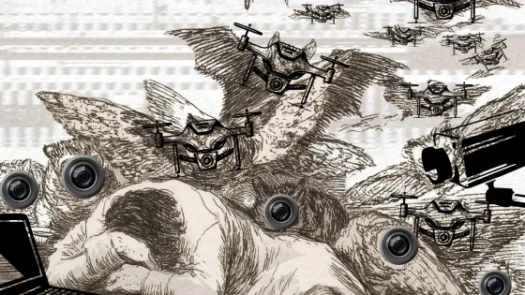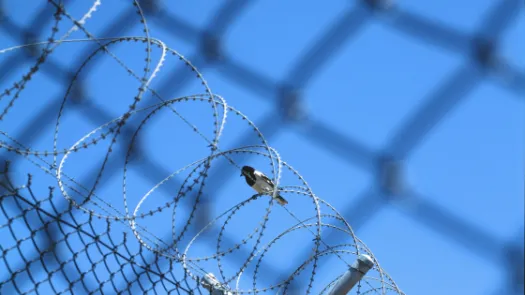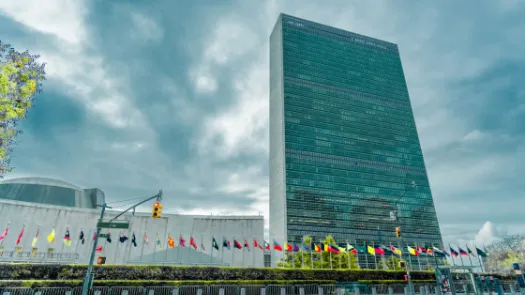
Defenders Coalition: Impact of Communication Surveillance on HRDs in Kenya
The Defenders Coalition has undertaken a survey of HRDs across Kenya to understand their level of exposure and their perception of communication surveillance.
- Real and perceived threats of surveillance negatively impact HRDs and have a chilling effect on the exercise of their rights and freedoms.
- HRDs have high level of awareness of a number of aspects of communication surveillance, and the threats they pose to their work, but there is varying expertise and knowledge of mitigation strategies.

Human rights defenders across the world have been facing increasing threats and harms as result of the use of digital and technological tools used by governments and companies which enable the surveillance, monitoring and tracking of individuals and communities. They are continuously at risk of violence, intimidation and surveillance as a direct consequence of the work they do. Such surveillance has been shown to lead to arbitrary detention, sometimes to torture and possibly to extrajudicial killings. And fear of such surveillance has a chilling effect on human rights defenders which can lead to self-censorship and changes in behaviour which undermine their ability to undertake their work.
The increasingly and continually escalating dangers human rights defenders face across the globe pose not only a threat to their lives, but they also threaten the autonomy, dignity and integrity of the communities whose human rights those same defenders have been acting to promote or protect.
Human right defenders play an important role to denounce, expose and challenge governments and other actors who are violation human rights to secure accountability and end impunity. They must be able to undertake their work safely, securely and free from arbitrary surveillance.
The Defenders Coalition has undertaken a survey of 56 human rights defenders from 38 counties across Kenya to understand their level of exposure and their perception of communication surveillance. This type of insights is crucial to understanding the needs of HRDs and the context in which they are operating as well as to advocate for legal reforms to ensure that the necessary protections and safeguards are in place in law and practice to protect them.
Below are extracts the introduction of the report as well as the key findings and the recommendations targeting specific stakeholders including the Kenyan government the private sector, the Kenya Commission on Human Rights, donors as well as national, local, and international CSOs and HRDs. The full report can be accessed on the Defenders Coalition's website in English and Swahili.
An introduction: Perception Survey
Numerous Kenyan HRDs have raised concerns about their mobile phones being tapped and their communication intercepted. Due to the negative implications on their security and that of their family, these experiences have had a chilling effect on the exercise of their rights and freedoms of expression, association, and assembly. It is essential to ensure that HRDs are not the subject of unlawful surveillance practices and that they are able to do their work without fear of snooping by anyone is of paramount importance.
This report analyses the needs, concerns, and areas of interests for HRDs in relations to privacy, data protection, and communications surveillance. It also establishes how surveillance impacts HRDs work and their role as actors of change in society. Human rights work demands use of communication tools ranging from face-to-face, traditional communication mediated tools like telephone and now, digital tools. All these provide varied degrees of risk, which are also specific to the work the HRDs are engaged in, as well as contexts. Examining the risk levels based on these specifics as well as finding the best- suited measures will be important for continued HRDs protection. Lastly, the report offers recommendations to various actors including HRDs to assist them in development of intervention and advocacy strategies.
Key findings
A number of findings are captured in this report:
- HRDs have high level of awareness of a number of aspects of communication surveillance, and the threats they pose to their work.
- There are various sources of information surveillance with hackers and scammers perceived as the most likely source followed by the intelligence service, and telecommunications and Internet service providers. Other sources identified include criminals, employers, friends, private companies, and families.
- HRDs perceive corporates and security forces as the ones trying to access their information, including through using friends and family members to monitor and collect information on them.
- Majority of HRDs believe that they have already been under communication surveillance because of their work. This includes through phone tapping and hacking of their social media and email accounts.
- HRDs are aware of behaviours that may put them at risk of surveillance and most have taken measures to reduce them. Face-to-face communication is perceived as the most secure in the survey; sending email and SMS without encryption are perceived as least secure.
- The most common ways that HRDs secure their communication gadgets include use of passwords which they change regularly, customising privacy settings to limit what data the cookies can access; views on social media, regular password changes, regular check of information to be collected, and use of different communication tools. Reluctance to accept phones and computer donations, securing and disguising footprints were also rated highly. HRDs are also exercising a lot of caution in what they share online.
- HRDs are concerned about the safety and privacy of their personal and work- related information. However, there are varying outcomes on the different apprehensions with gaps between concerns about online surveillance and the actual practice of information sharing.
- Majority of the HRDs though aware of the Data Protection Act are not well acquainted with its provisions and implications, including the role of the Data Commissioner.
- Majority are concerned that the data collected as part of measures to address COVID-19 pandemic is not in safe hands of the government or corporates.
- HRDs are suspicious of the biometric data collected by the National Integrated Information Management System (NIIMS) or huduma number.
Recommendations
For government:
- Fast track amendments to the Computer Misuse and Cybercrimes Act, 2018 to ensure conformity with the Constitution and international standards of protecting privacy.
- Enact policies and laws that provide an environment for defenders to conduct their work freely and in a safe and enabling environment without communication surveillance.
- Fastrack implementation of the Data Protection Act including ensuring the office of the Data Commissioner’s office is operationalised, well resourced, and free from any interference.
- Investigate reported cases of unlawful surveillance on human rights defenders and ensure the culpable persons are held responsible.
- Take necessary measures to reform surveillance policies and practices to ensure they comply with Kenya’s national and international human rights obligations
- Call for accountability and transparency of law enforcement and security agencies undertaking surveillance activities
- Disclose the surveillance capabilities of Kenyan government
- Introduce safeguards to ensure that the rights of mobile telephony subscribers in relation to their personal data are guaranteed.
For the private sector:
- Be more transparent about their business models as well as how personal data is being processed as a result of the use of their services;
- Make public the measures they take to respond to government request for personal data belonging their users, for example, through publication of transparency reports.
- Comply with provisions on the Data Protection Act regarding processing, storage, and sharing of data pertaining to their clients and customers.
For the Kenya Commission on National Human Rights:
- Call for appointment of an independent authority to investigate communications monitoring and surveillance programmes conducted by the Kenyan government and ensure that these practices respect the government’s national and international obligations to protect the privacy of its citizens and their personal data.
- Investigate all reported cases of surveillance of human rights defenders and ensure redress mechanisms are available should these lead to identification of violations of the right to privacy.
- Advocate for the adoption of safeguards to ensure that the state surveillance of online and offline activities is lawful and do not infringe on human rights defenders’ right to freedom of expression and ability to defend human rights, including through use of the information communication technologies.
For national, local, and international CSOs and HRDs:
- Advocate for amendments to the Computer Misuse and Cybercrimes Act, 2018 to ensure it conforms with the Constitution and international standards of protecting privacy.
- Monitor how the Data Protection Commissioner’s Office is being set-up and operating to ensure it is independent and undertakes its work according to the law.
- Engage in advocacy aimed at holding ISPs accountable to the law as far as communication surveillance and privacy is concerned.
- Continue building capacity to identify threats and risks to identify relevant and effective mitigation strategies. Organisations and networks should reconsider practices that may expose HRDs to surveillance and security risks.
- Make communication surveillance and information safety as topics of constant discussion in HRDs’ forums as they are at the core of their work.
For donors:
- Support HRDs and CSOs to build systems, plans, and policies that can improve implementation of safe communication policies and practices.
- Provide funding to rural based CSOs to work on issues of privacy and surveillance.
- Support efforts to protect and temporarily relocate HRDs under stressful environments due to constant surveillance and face serious security threats because of their work.
- Continue supporting HRDs to network including at international level. These include supporting some HRDs to participate in regional and international forums such as African Commission for Human rights and UN mechanisms like Special Rapporteurs.
The full report can be accessed on the Defenders Coalition's website in English and Swahili.



